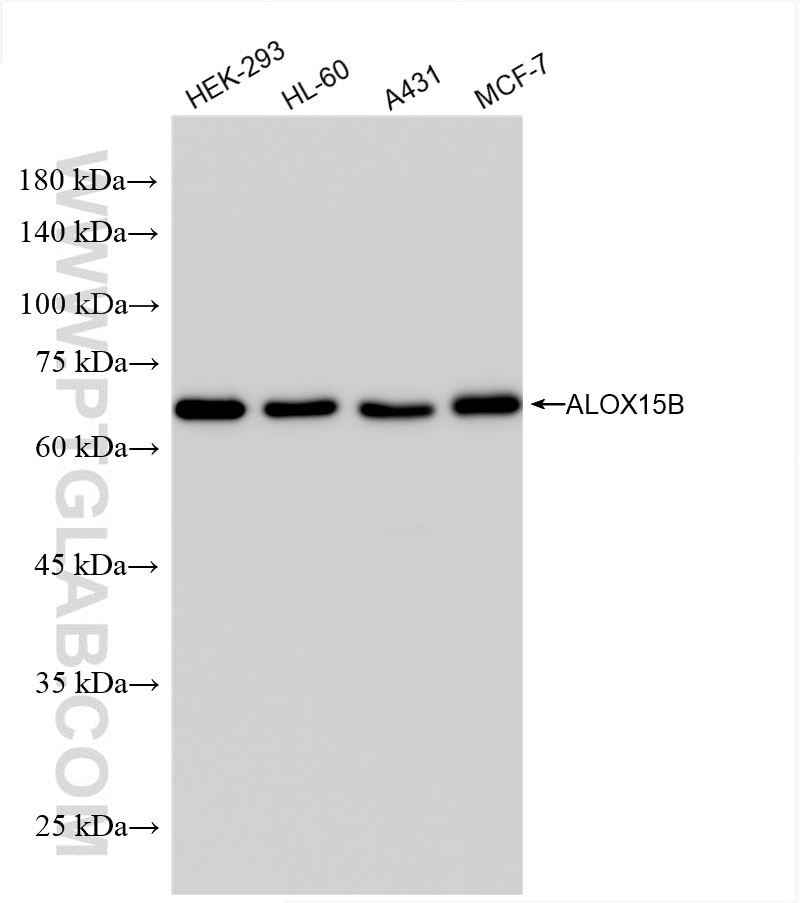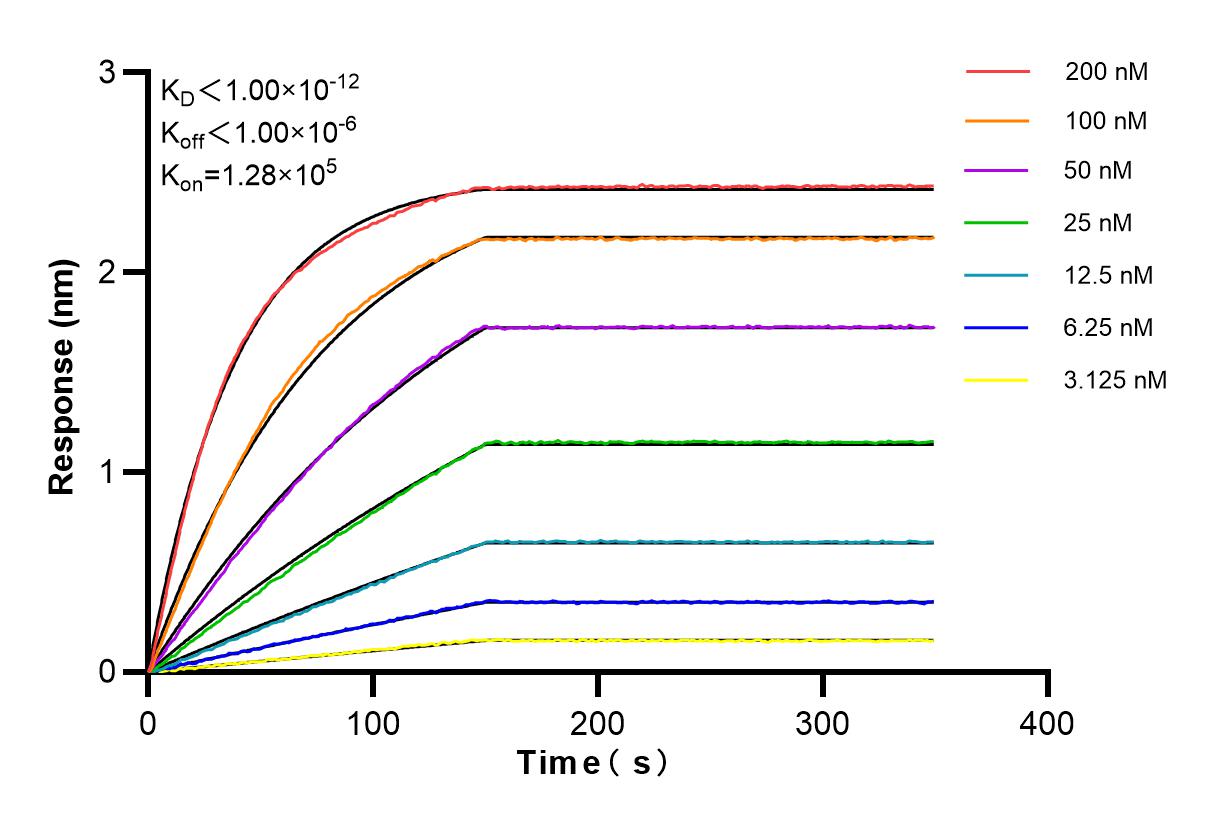Tested Applications
| Positive WB detected in | HEK-293 cells, HL-60 cells, A431 cells, MCF-7 cells |
Recommended dilution
| Application | Dilution |
|---|---|
| Western Blot (WB) | WB : 1:5000-1:50000 |
| It is recommended that this reagent should be titrated in each testing system to obtain optimal results. | |
| Sample-dependent, Check data in validation data gallery. | |
Product Information
86146-1-RR targets ALOX15B in WB, ELISA applications and shows reactivity with human samples.
| Tested Reactivity | human |
| Host / Isotype | Rabbit / IgG |
| Class | Recombinant |
| Type | Antibody |
| Immunogen |
CatNo: Ag3741 Product name: Recombinant human ALOX15B protein Source: e coli.-derived, PGEX-4T Tag: GST Domain: 1-351 aa of BC035217 Sequence: MAEFRVRVSTGEAFGAGTWDKVSVSIVGTRGESPPLPLDNLGKEFTAGAEEDFQVTLPEDVGRVLLLRVHKAPPVLPLLGPLAPDAWFCRWFQLTPPRGGHLLFPCYQWLEGAGTLVLQEGTAKVSWADHHPVLQQQRQEELQARQEMYQWKAYNPGWPHCLDEKTVEDLELNIKYSTAKNANFYLQAGSAFAEMKIKGLLDRKGLWRSLNEMKRIFNFRRTPAAEHAFEHWQEDAFFASQFLNGLNPVLIRRCHYLPKNFPVTDAMVASVLGPGTSLQAELEKGSLFLVDHGILSGIQTNVINGKPQFSAAPMTLLYQSPGCGPLLPLAIQLSQTPGPNSPIFLPTDDKW Predict reactive species |
| Full Name | arachidonate 15-lipoxygenase, type B |
| Calculated Molecular Weight | 676 aa, 76 kDa |
| Observed Molecular Weight | 67-75 kDa |
| GenBank Accession Number | BC035217 |
| Gene Symbol | ALOX15B |
| Gene ID (NCBI) | 247 |
| Conjugate | Unconjugated |
| Form | Liquid |
| Purification Method | Protein A purification |
| UNIPROT ID | O15296 |
| Storage Buffer | PBS with 0.02% sodium azide and 50% glycerol, pH 7.3. |
| Storage Conditions | Store at -20°C. Stable for one year after shipment. Aliquoting is unnecessary for -20oC storage. 20ul sizes contain 0.1% BSA. |
Background Information
In humans, there are 6 functional lipoxygenases genes. Two of them encode for arachidonic acid 12-lipoxygenating (ALOX12, ALOX12B) and two for 15-lipoxygenating enzymes (ALOX15, ALOX15B). ALOX15B has been described as the most abundant 15-lipoxygenating enzyme species in human carotid atherosclerotic lesions and to be associated with cerebrovascular symptoms. (PMID:24373925).
Protocols
| Product Specific Protocols | |
|---|---|
| WB protocol for ALOX15B antibody 86146-1-RR | Download protocol |
| Standard Protocols | |
|---|---|
| Click here to view our Standard Protocols |






